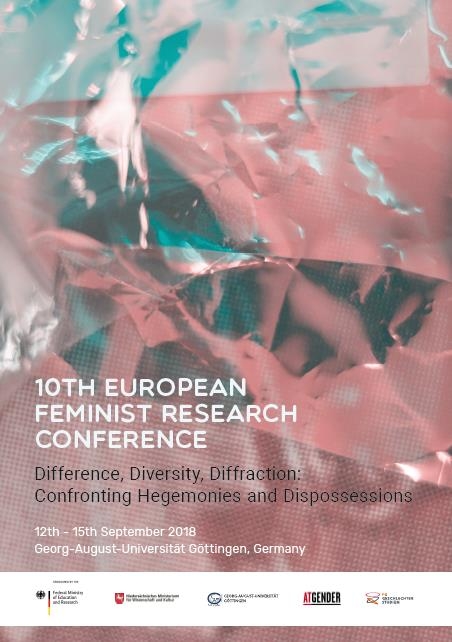The Interactional Production of Narratives on Trans Categories: The Role of Body Modifications
DOI:
https://doi.org/10.17169/ogj.2021.77Keywords:
Gender, Membership Categories, Biomedical Discourse, Transsexuality, TravestilityAbstract
In this article, we investigate how participants self-identified as travestis and transsexual women negotiate gender identity categories during meetings of a support group in a non-governmental organization in Porto Alegre, Brazil. We are interested in (a) how trans categories become relevant in talk-in-interaction and in (b) how these categories are constructed vis-à-vis biomedical discourse about transsexuality. The corpus of this research is composed of seven hours of video-recorded interaction, which were analyzed and transcribed following Conversation Analysis (CA) theoretical principles and methodological procedures. Our results point out that participants oriented to the role of body modifications in stressing identity category differences among travestis, transsexual women and gay men. We noticed that narrative analysis inspired by CA emerges as a powerful apparatus to understand the process of membership categorization. Data are in Brazilian Portuguese.
References
American Psychiatric Association (2013): Diagnostic and Statistical Manual of Mental Disorders. Fifth Edition. Arlington, VA: American Psychiatric Association.
Antaki, Charles/Widdicombe, Sue (1998): Identities in talk. California, USA: SAGE.
Bamberg, Michael (2012): Narrative Analysis. In: American Psychiatric Association. Handbook of Research Methods in Psychology. Volume 2. Arlington, VA: American Psychiatric Association, 85–102.
Bento, Berenice (2006): A reinvenção do corpo. Sexualidade e gênero na experiência transexual. Rio de Janeiro, Brasil: Garamond.
Blumer, Herbert (1954): What is Wrong with Social Theory. In: American Sociological Review 18, 3–10.
Boatcă, Manuela/Roth, Julia (2015): Unequal and gendered: Notes on the coloniality of citizenship. In: Current Sociology 64 (2), 1–22.
Borba, Rodrigo (2017): Ex-centric textualities and rehearsed narratives at a gender identity clinic in Brazil: Challenging discursive colonization. In: Journal of Sociolinguistics, 21 (3), 320–347.
Butler, Judith (1990): Gender Trouble. Feminism and the Subversion of Identity. New York: Routledge/Chapman & Hall.
Butler, Judith (2011): Bodies that Matter. On the discursive limits of sex. New York: Routledge.
Carvalho, Mario/Carrara, Sérgio (2013): Towards a Trans Future? Contributions to a History of the Travesti and Transsexual Movement in Brasil. In: Sexualidad, Salud y Sociedad – Revista Latinoamericana 14 (2), 319–351.
Castel, Pierre-Henri (2001): Algumas reflexões para estabelecer a cronologia do “fenômeno transexual” (1910–1995). In: Revista Brasileira de História 21 (41), 77–111.
Connell, Raewyn (1995): Masculinities. Cambridge: Polity Press.
Connell, Raewyn (2000): The Men and the Boys. Berkeley, Los Angeles: University of California Press.
Crenshaw, Kimberlé (1989): Demarginalizing the Intersection of Race and Sex. A Black Feminist Critique of Antidiscrimination Doctrine, Feminist Theory and Antiracist Politics. In: University of Chicago Legal Forum 1989 (8), 139–167.
Erickson, Frederick (1992): Ethnographic Microanalysis. In: McKay, Sandra Lee/Hornberger, Nancy H. (Eds.): Sociolinguistics and Language Teaching. Cambridge: Cambridge University Press, 283–306.
Erickson, Frederick (2014): Talk and Social Theory. Ecologies of speaking and listening in everyday life. Cambridge: Polity Press.
Foucault, Michel (1978): The history of Sexuality. Volume I: An Introduction. NewYork: Pantheon Books.
Garcez, Pedro M./Bulla, Gabriela S./Loder, L. Letícia (2014). Microethnographic Research Practices. Generating, Segmenting and Transcribing Audiovisual Data as Full-Fledged Analytic Procedures. In: D.E.L.T.A. 30 (2), 257–288. doi: 10.1590/0102-445078307364908145.

Downloads
Published
How to Cite
Issue
Section
Categories
License
All contributions in Open Gender Journal are published under the Creative Commons Attribution 4.0 International license. You may freely make use of the corresponding texts in accordance to the conditions of the license (License contract, generally understandable version). There is no exclusive transfer of usage rights ("copyright transfer"). Open Gender Journal does not charge authors any costs for publication (so-called Article Processing Charges, APC) or submission (so-called Submission Charges). Authors are encouraged to share their contributions in other places, such as repositories.












